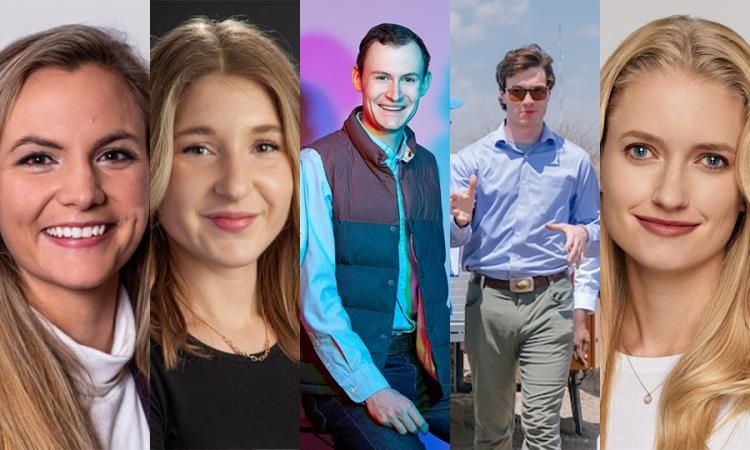Time and time again, students, graduates and employees of the Institute have proven themselves to be drivers of innovation and leaders of large-scale change.
Despite the new year just beginning, 2023 looks no different; constituents of the Tech community appear to be more motivated than ever to make a name for themselves in their industries.
An explicit showcase of this zeal took place in the beginning of January when it was announced that eight Tech alumni were chosen from an applicant pool of over 12,000 people for this year’s esteemed Forbes 30 Under 30 list.
Unsurprisingly, the selection process is quite rigorous and intense; according to the Forbes website, to be considered, one must first nominate themselves or be nominated by someone else.
After being submitted for consideration, candidates are closely evaluated by reporters, editors and expert judges according to their work’s funding, revenue, social impact, inventiveness and potential. Following their individual evaluation, a condensed list is presented to a panel of judges who then solidify their final choices for each category.
All in all, the final list aims to highlight the efforts of 30 prominent entrepreneurs below the age of 30 across 20 different industries. All together, a total of 600 individuals make the prestigious list each year from the larger pool.
Former Tech students Jhillika Kumar (CM ‘20), Conner Reinhardt (ISYE ‘19), Cambre Kelly (BMED ‘15), Nicholas Selby (ME ‘16), Allyson McKinney (MS ECE ‘19), Sneh Parmar (BA ‘16), Zhenyu Zhang (MS CS) and Lydia Hylton (CMPE ‘16) were all featured on the coveted list for their accomplishments across the medical, energy, manufacturing, social and e-commerce sectors.
Selby — the director of engineering for Renewvia Solar Africa — says that he was both thrilled and surprised when he heard the news of his selection for the energy category.
According to communication released by the Institute, Selby was nominated for the award due to his work on “the installation and upkeep of mini-grids [that provide] sustainable power to over 20,000 people.” According to his LinkedIn, he is responsible for the “design, procurement, construction, productive use, and software infrastructure of [said] solar mini-grids in rural Kenya and Nigeria.”
When asked how his time at the Institute aided in his future success, Selby gave a shoutout to the Solar Racing team for providing him with an excellent foundation for the work he does today.
“Joining the Georgia Tech Solar Racing team prepared me to succeed not only by introducing me to the incredible power of photovoltaic technology, but [it] also [taught] me the leadership and engineering fundamentals I use for building solar mini-grids across Africa,” he said in the Institute communication.
He also went on to explain that he came to Tech with the intentions of constructing an Iron Man suit, but through his experiences, he realized that he “[found] the engineering challenges of solar rural electrification more intellectually stimulating and the applications more personally rewarding.”
Selby is known by many in the campus community for his viral freshman convocation speech that led to the emergence of Tech’s unofficial motto, “We can do that.”
Zhang, a recipient within the energy category, also accredited a portion of his Forbes success to the teachings here at the Institute.
While obtaining his master’s degree in CS at the Institute, the communication reported that Zhang “worked on several projects that applied computer science skills to other industrial applications, such as training robotic chemists using active learning.”
Moreover, he also mentioned Merrick Furst’s Deliberate Innovation and Startup course as pivotal to his creation of an ammonia production company. In this class, Zhang said that he was “taught valuable skills, including identifying cognitive biases and authentic demands.”
He utilizes both these experiences currently through his role of assisting in the development of Independent Ammonia Making Machine (IAMM) — the venture that made him a Forbes recipient.
According to his company, AmmPower, the IAMM can be described as “the world’s first decentralized and electrified production unit, which uses renewable electricity, air and water to produce green ammonia that can serve as a hydrogen carrier, carbon-free fertilizer, fuel or nitriding chemicals in the semiconductor industry.”
This summer, a prototype of his work is scheduled to be constructed for commercial use. Each recipient expressed similar sentiments about how all Tech students are capable of doing great work.
Selby cheered on students by saying that “if you want to change the world, you’re at Georgia Tech. You can do that.” He also noted that it is the job of students to ensure that their occupation has beneficial effects on the world.
Sneh Parmar, a Forbes recipient for his efforts within the retail and e-commerce category, says that he hopes that his nomination will showcase that students have the ability to achieve anything they desire and hope for.
Parmer also concluded by saying that, “[Using] the resources available to them by attending Georgia Tech, [students] can do something truly at a global scale.”
